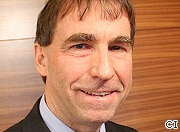Opposition to controversial three and four-parent baby techniques is building, ahead of a House of Commons vote tomorrow.
The Roman Catholic Church in England and Wales and the Christian Medical Fellowship have both raised serious objections about the ethics and safety of the procedures.
Bishop John Sherrington, of the Church’s Department for Christian Responsibility and Citizenship, said that many people are “rightly concerned” about the “profound implications” of allowing the creation of three-parent babies.
Ethical objections
And he commented: “No other country has allowed this procedure and the international scientific community is not convinced that the procedure is safe and effective.”
“There are also serious ethical objections to this procedure which involves the destruction of human embryos as part of the process.”
“This is a very serious step which Parliament should not rush into taking”, he added.
Scientific community
Tomorrow the House of Commons is set to vote on regulations allowing Maternal Spindle Transfer, which uses material from three parents, and Pro Nuclear Transfer, which involves four parents.
The aim of the techniques is to create children free from mitochondrial disease (MCD).
Doctor Peter Saunders, Chief Executive of the Christian Medical Fellowship (CMF), raised concerns that MPs who have no science or ethics background will be basing their votes on what the scientific community tells them.
Duped
He said the same scientists who are pushing for three and four-parent babies previously managed to ‘dupe’ Parliament into allowing a similar technique, which hasn’t worked and is now a “farcical footnote in history”.
He said: “Such a track record does not engender trust in their judgments, especially when one considers the deep ideological and financial vested interests involved.”
Dr Saunders also explained that CMF has “warned repeatedly about the dangers of these techniques crossing two scientific rubicons in allowing both germline alteration (generationally transmissible genetic modification) and also cell nuclear replacement”.
Suffering
He added: “This is not about finding a cure. It is about preventing people with MCD being born.
“We need first to be clear that these new technologies, even if they are eventually shown to work, will do nothing for the thousands of people already suffering from mitochondrial disease or for those who will be born with it in the future.”
The Human Fertilisation and Embryology (Mitochondrial Donation) Regulations 2015 could come into force in October this year if Parliament supports them.
If approved by the House of Commons and the House of Lords, the UK would become the only country in the world to permit the two techniques.

